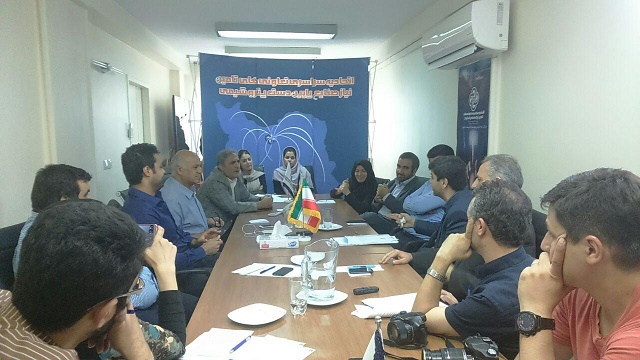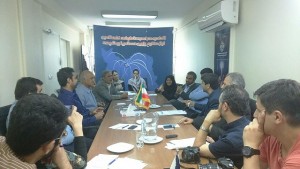Iran PVC Market Conflict Discussed in Association Session: The Downstream Petrochemical Procurement Cooperatives Association convened on Saturday to address a volatile PVC market.
During the session, the representatives of some polymer industrial units whose main raw material is PVC raised concern over a new regulation lifting a ceiling over the price of PVC, citing an unhealthy competitive vibe as well as slumping supplies and growing prices in the wake of the issuance of the regulation in the current Iranian year (since March 20).
In the beginning of the session, Mr. Kiani, in charge of regulating petrochemical products market, offered his interpretation of the situation. On one hand, he said, producers are asking for a price ceiling for PVC products.
However, he raised the questions if putting a ceiling will reduce or increase the sales of PVC in the domestic market, or if it will benefit the industry.
“If we reinstate the ceiling, sales will be organized and money will reflow into the industry. Now, the money goes to petrochemicals, while part of it also goes to middlemen and part to the industry. This is the first topic for discussion,” he stated.
“On another hand, there is the issue of whether or not to allow foreign suppliers. And yet on another hand, some producers have called for eliminating free-zone companies,” Kiani said, adding, “The reality is that we (petrochemicals) are not in control of some companies. Discuss the presence of foreign suppliers neither with the mercantile market nor with the petrochemical sector. The user itself can find the supplier with best conditions.”
In the meantime, Mr. Memarzadeh, Isfahan PVC cooperative representative and a producer, proposed that a portion of imports be allowed if a certain amount was bought from the mercantile market.
“As another problem, long-term contracts that used to be signed by domestic producers with the governmental sector were filed when PVC prices were low, but now they have gone so high. You can oblige the marketing section of the Petrochemical Co. to engage in combined cooperation with producers,” he added.
Downstream Petrochemical Procurement Cooperatives Association Executive Director Hossein Dor, for his part, said, “If the issue of price ceiling and amending prices which has also been mentioned by the Customers’ Rights Organization is not taken seriously, we will have to invite the Governmental Sanctions Organization to enter into the case.”
After this, Abbas Yaghubi, director of inspectors and lobbies affairs of Iran Mercantile Exchange, offered his proposal by saying, “The Association and the Ministry of Industry have to study into the real capacities of the producers. It is necessary that a management of exports, demands as stated by the market, and supplies be implemented.”
Mr. Kharrazi, a producer, said, “Who, or what sector should carry out the management of production? We need 6,000 tons a month. If the market offers 4,000 tons, who is going to be responsible for procuring the remaining 2,000 tons?”
Mr. Prizadeh, another producer, asked that a workgroup be launched by the petrochemical sector to tackle the problem. The proposal was seconded by Mr. Mirzadeh, member of the Association.
At the end of the session, it was settled that the Mercantile Market presents the Association with related statistics in one week.














